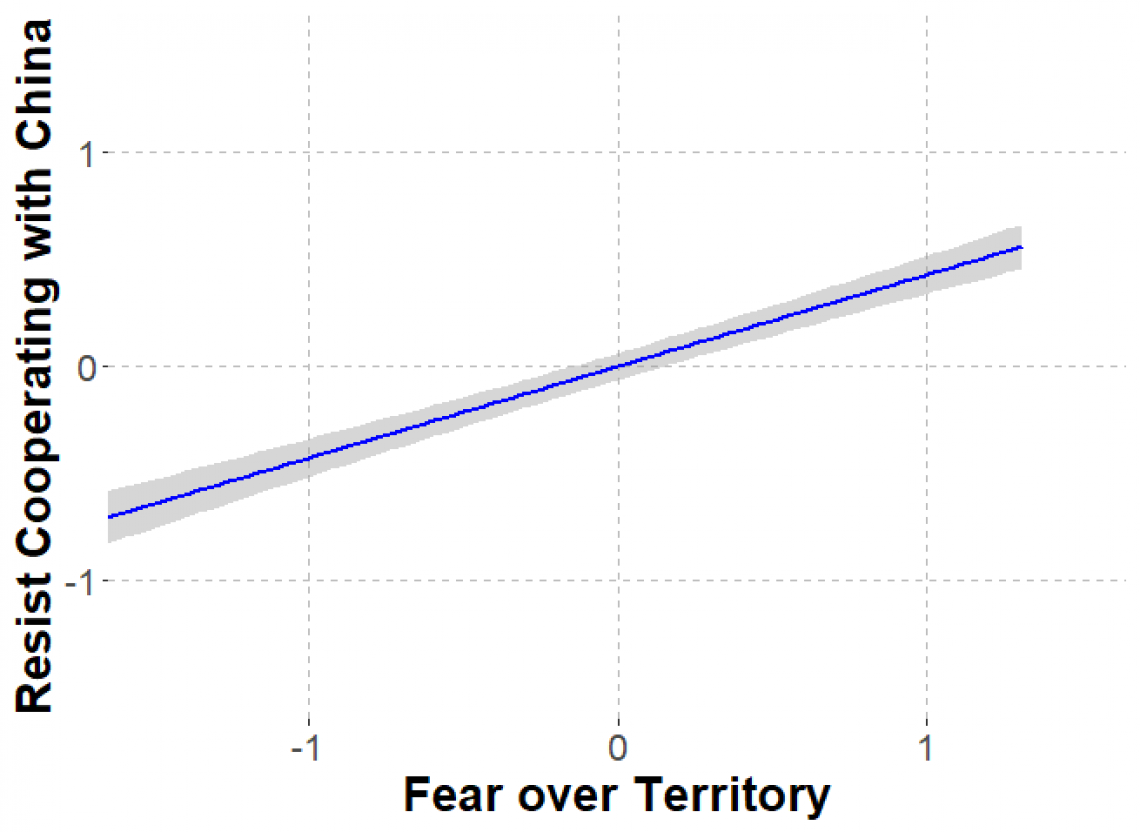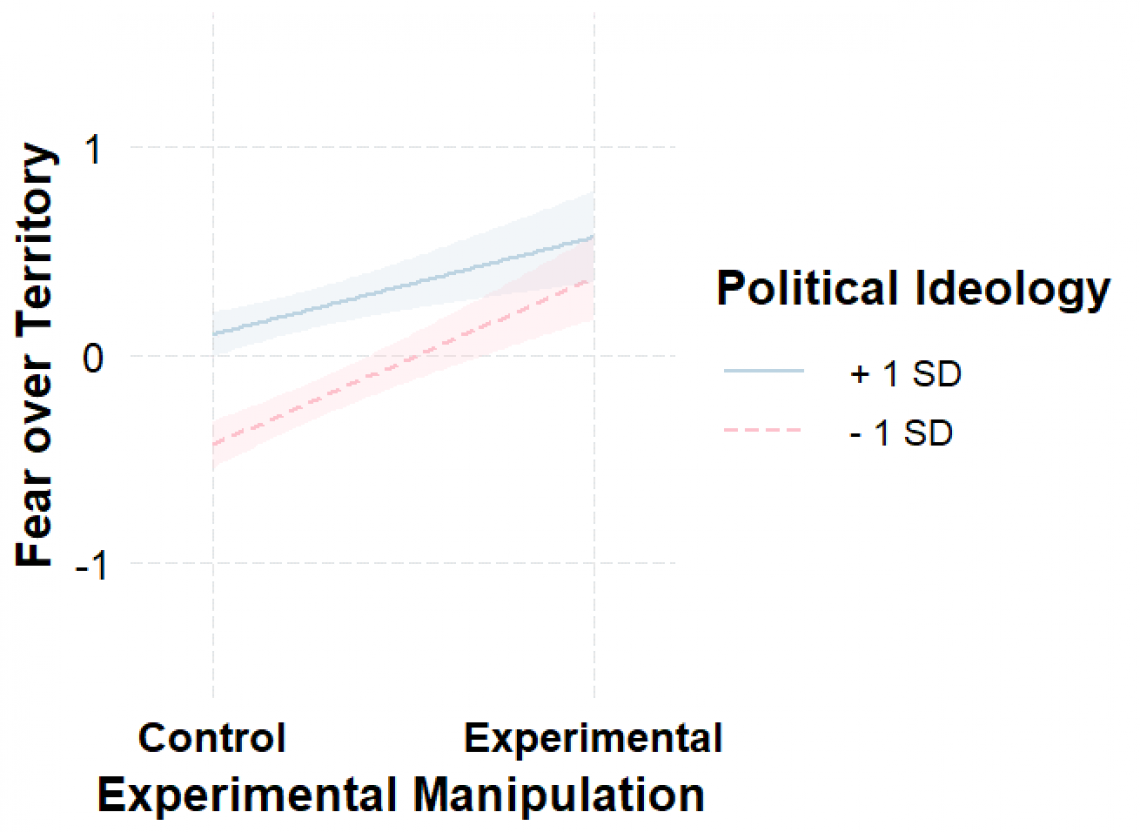Image of Territorial Infringement
Researchers from Osaka University find that Japanese liberals and conservatives react differently to perceived threats to national sovereignty and that there is less willingness to cooperate with the policies of countries perceived as threatening
Osaka, Japan – Throughout the world, it is common for threats to national sovereignty or territorial integrity to stir up strong emotions among the public. Now, researchers from Japan have found that the strength of the reaction to such threats can break down along political lines in interesting ways.
In a study published in Peace and Conflict: Journal of Peace Psychology, researchers from Osaka University have revealed that the Japanese public is highly sensitive to what are known as “collective ownership threats” (COT, i.e., fear of losing control of what is perceived as “ours”), as might be expected given Japan’s strongly collectivist and ethnically homogenous character. Interestingly though, Japanese individuals with politically liberal beliefs tend to show a higher degree of sensitivity to COT than conservatives.
Political scientists distinguish between COT and other types of potential threats to a nation, such as economic or symbolic threats. Although there may be some overlap between these types of threats, in the case of COT, the defining feature is the sense that something that is “ours” is being infringed upon by outsiders (such as a foreign nation).
“In Japan, the issue of the Senkaku Islands (known as the Diaoyu Islands in Chinese) is a matter of great public concern,” says lead author of the study Tomohiro Ioku. “Reports of threats to Japan’s territorial rights over the islands, such as when a Chinese Coast Guard ship recently entered nearby waters, can cause significant public anxiety.”
Fear over Territory and Resistance to Cooperating with China.
Note. The slope of a straight line indicates higher the fear is, the higher the level of resistance.
To investigate how the Japanese public reacts to such infringements, the researchers conducted an online survey of more than 800 Japanese adults in February 2022. As part of this survey, the respondents were shown a fictitious newspaper article depicting a threat from China to Japan’s collective ownership, economy, or culture and tradition.
“Our findings suggest that the Japanese public is particularly sensitive to COT,” explains Eiichiro Watamura, senior author. “However, what is fascinating is that this sensitivity is even more pronounced among liberals than conservatives.”
This finding runs counter to conventional wisdom, which is that conservatives tend to react more strongly to issues involving territorial integrity and national sovereignty. Another interesting finding is that the fictitious examples of COT from China in the study had the result of reducing the participants’ willingness to cooperate with Chinese policies such as the Belt and Road Initiative.
This study underscores the psychological importance of collective ownership threats, potentially deterring countries from engaging in activities that infringe on the territorial integrity of others.
Differences in Fear over Territory by Experimental Manipulation: +1SD for Conservatism, -1SD for Liberalism. Note. The slope of the straight line indicates how much higher fears are in the experimental condition than in the control condition. Participants in the experimental condition read articles about losing Japanese territory, while those in the control condition read articles with no such statement.
###
The article, “Cultural invariance and ideological variance of collective ownership threat in intergroup relations,” is published in Peace and Conflict: Journal of Peace Psychology at DOI: https://doi.org/10.1037/pac0000707
About Osaka University
Osaka University was founded in 1931 as one of the seven imperial universities of Japan and is now one of Japan's leading comprehensive universities with a broad disciplinary spectrum. This strength is coupled with a singular drive for innovation that extends throughout the scientific process, from fundamental research to the creation of applied technology with positive economic impacts. Its commitment to innovation has been recognized in Japan and around the world, being named Japan's most innovative university in 2015 (Reuters 2015 Top 100) and one of the most innovative institutions in the world in 2017 (Innovative Universities and the Nature Index Innovation 2017). Now, Osaka University is leveraging its role as a Designated National University Corporation selected by the Ministry of Education, Culture, Sports, Science and Technology to contribute to innovation for human welfare, sustainable development of society, and social transformation.
Website: https://resou.osaka-u.ac.jp/en





